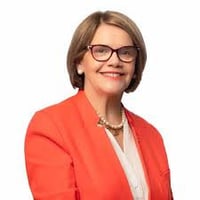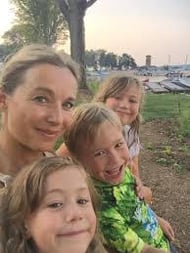This year has been unlike any other year of my teaching career. But these challenges have brought a bit of inspiration and opened up opportunities. There may be a glimmer of a silver lining. I love to take deep dives with my students into themes, discussions, projects, etc. and this year has afforded my students that opportunity in different ways. Let me outline two ways that hybrid learning and zoom technology allowed me to bring two exciting opportunities to two groups of students.
- A real estate project for French 1B students
- A Global Studies mini-module series for Upper School students
In August, before the return to school we did a Project Based Learning (PBL) workshop and, thanks to COVID, I had already spent a great deal of the summer working to prepare for this school year, so I was in a pretty good place with regards to preparation for this unique year. Because of that, I was able to undertake the creation of a PBL project for my French class with Dr. Janet Lainé, my upper school counterpart. We weren’t sure at the time if we really would be able to use it this year with the new schedule, but the more I thought about it the more I felt that this year more than ever that I needed to try to do something impactful, something that would really wow students, and force them to step up to the challenge.
The project had a simple premise: students would pretend to be real estate agents helping three different  French families find three options for their housing needs around the French-speaking world. We started by looking at houses throughout France, Canada and Northern Africa, learning about the parts of a house, how to describe houses and ask people questions about houses. Then we invited a French-speaking real estate agent, Madame Pascale Durand (pictured left), a former Tampa Prep Parent, to speak to students via Zoom. She told them what is important about meeting with clients who will buy a home and how to conduct an interview with clients. The next step was to interview the French families.
French families find three options for their housing needs around the French-speaking world. We started by looking at houses throughout France, Canada and Northern Africa, learning about the parts of a house, how to describe houses and ask people questions about houses. Then we invited a French-speaking real estate agent, Madame Pascale Durand (pictured left), a former Tampa Prep Parent, to speak to students via Zoom. She told them what is important about meeting with clients who will buy a home and how to conduct an interview with clients. The next step was to interview the French families.
 We had three clients join us: Anne McConnon (pictured, right), a friend of mine from France who is actually looking for a house, Veronique Lepine, mother of Naomie Dussault ‘22, from Canada, and Eljadji Touré, Tampa Prep’s Technology specialist who is originally from Senegal. All joined us via Zoom, and students interviewed their “clients” in breakout rooms. They then created a portfolio of houses that would meet each client’s needs and fit his/her budget. It was a memorable project for everyone and, frankly, Zoom made this project easier! If I had tried this last year, I would have had to coordinate with the guest speakers to come to campus, and in the case of my friend in France, of course, that would not be possible.
We had three clients join us: Anne McConnon (pictured, right), a friend of mine from France who is actually looking for a house, Veronique Lepine, mother of Naomie Dussault ‘22, from Canada, and Eljadji Touré, Tampa Prep’s Technology specialist who is originally from Senegal. All joined us via Zoom, and students interviewed their “clients” in breakout rooms. They then created a portfolio of houses that would meet each client’s needs and fit his/her budget. It was a memorable project for everyone and, frankly, Zoom made this project easier! If I had tried this last year, I would have had to coordinate with the guest speakers to come to campus, and in the case of my friend in France, of course, that would not be possible.
My second example of how redesigning and rethinking things this year have yielded amazing results is a speaker series organized for upper school students. Beginning at the end of October through January 2021, Upper School Global Studies Concentration students will participate in a five-part, mini-module series with six guest speakers: one from Nicaragua, one from Guatemala and four spread out across the United States (shhh don’t tell them, they don’t know yet).
In this mini-module series, students will explore issues around migration and displacement. We will meet with a Guatemalan community organizer who fled Guatemala during its civil war as a political refugee, but has now returned. We’ll discuss sustainable development with a Nicaraguan who works with NGOs. Chris Temple and Zach Ingrasci from Optimist Films will be adding their voices to this series by discussing their upcoming documentary Five Years North which follows the story of a 16-year undocumented worker and an ICE agent.
Without zoom and without having to rethink my approach to the curriculum this year, these two opportunities wouldn’t have arisen. This year has been trying, but there are elements of it that have given rise to great new things, partnerships, and connections with the community around the globe. Here’s to bringing the outside in, to turning students on to how connected we are, and how fruitful relationships with those that are near and far can be.